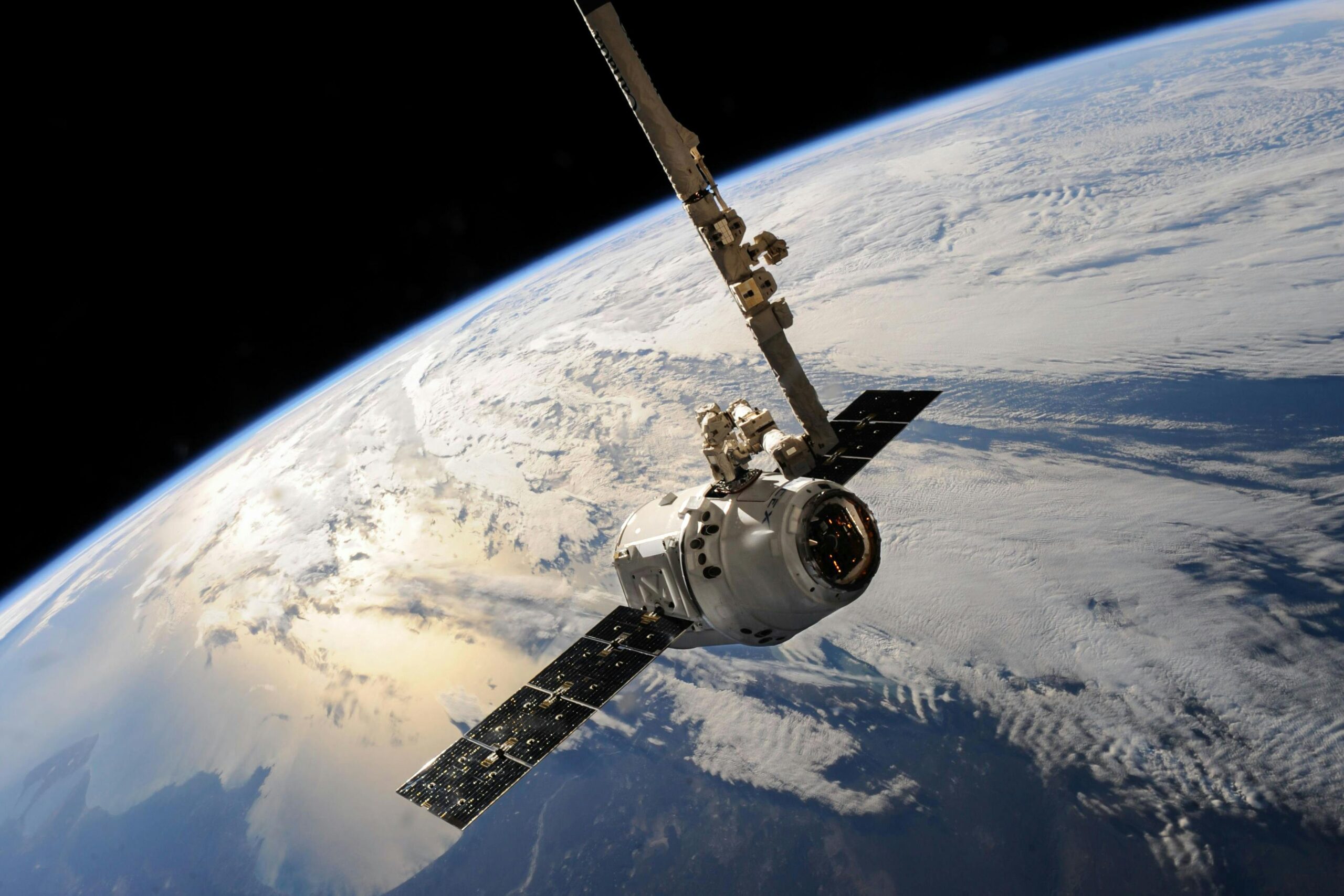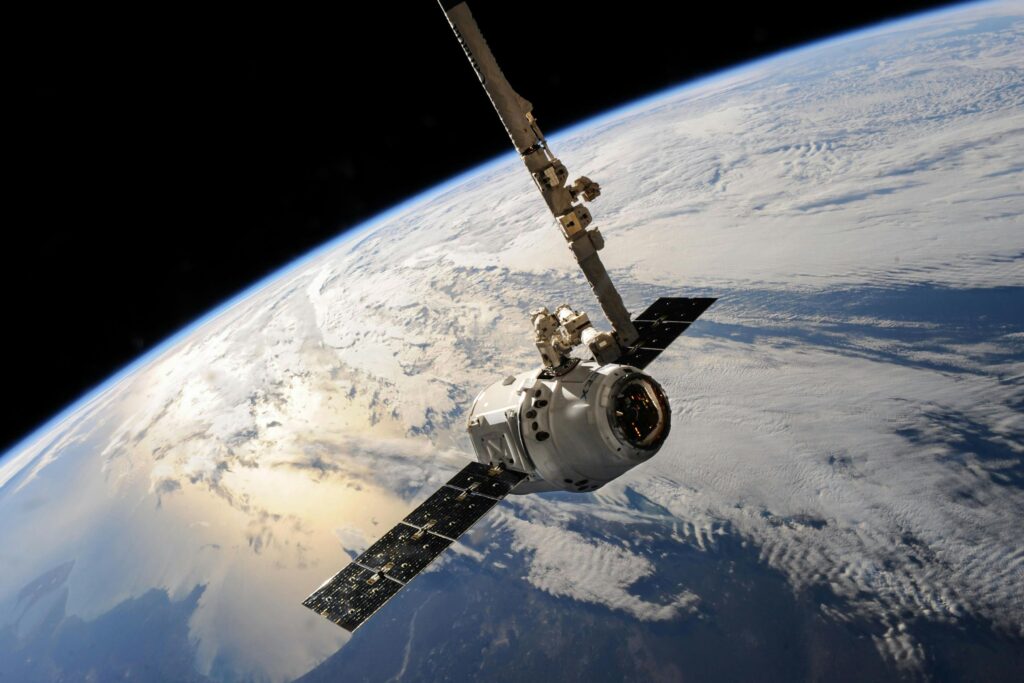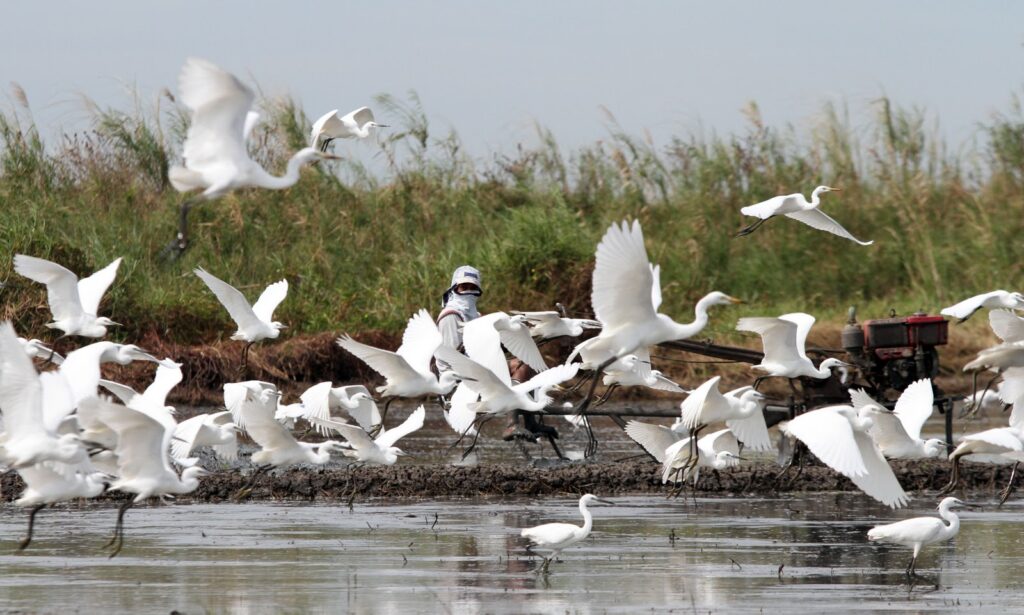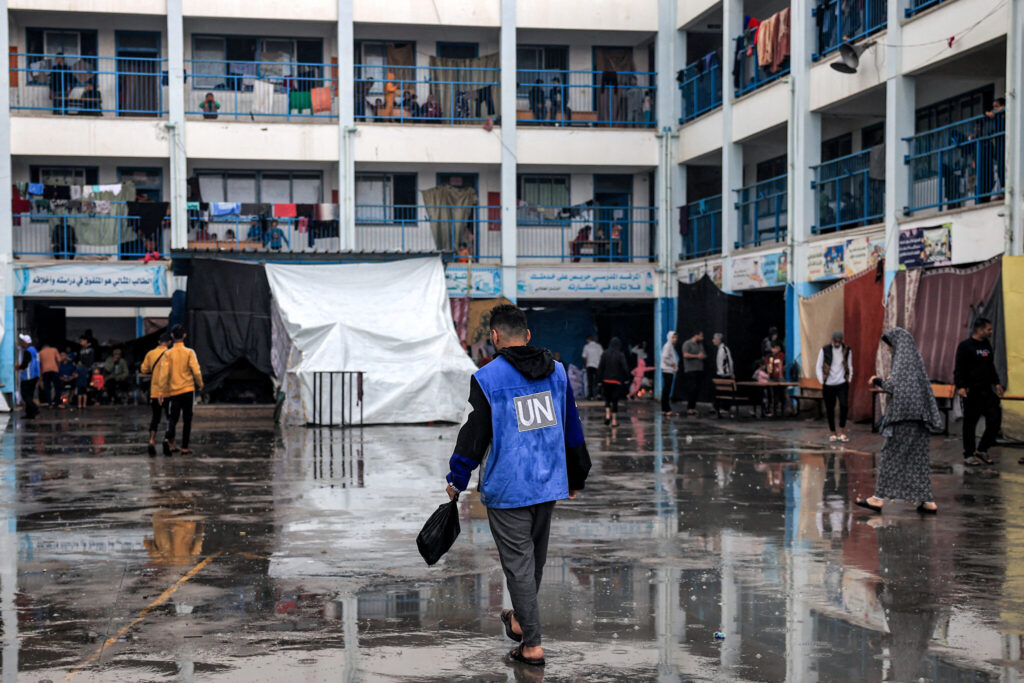In developed countries, satellite technology is ubiquitous, supporting everything from the internet to our mobile phones. For developing nations, the information satellites provide can be matters of life or death; they guide disaster management and rescue operations, monitor crop yields, measure the impact of climate change, and detect the use—sometimes the abuse—of a nation’s natural resources.
The UN’s Office for Outer Space Affairs, UNOOSA, is determined to make satellite technology accessible to all countries, rich and poor. Meanwhile, the governance of space is being watched closely by the more than $200-billion space industry here in the U.S.
Peter Yeo talked with UNOOSA’s Director, Aarti Holla-Maini, to hear how one of the smallest UN agencies is handling the infinite challenges of governing outer space.
Listen to their conversation now or read below for highlights from their discussion.
Excerpts have been edited.
Yeo: Many Americans would be surprised to know that the UN has an office on space. Why was UNOOSA created?
Holla-Maini: UNOOSA was created as an expert unit back in 1957 and to serve at the time, an ad hoc committee on the peaceful uses of outer space. And that expert unit grew over a few years. And in 1992, it was rebranded the Outer Space Affairs Division of the United Nations Secretariat.
Yeo: So how does your office work to ensure that countries around the world can actually use data from satellites in order to protect themselves from natural disasters?
Holla-Maini: So we have a program called UN-SPIDER which stands for Space Based Information for Disaster and Emergency Relief.
And our team, a very tiny team of a few individuals, they actually run technical advisory missions and institutional strengthening missions where they go around the world at the request of a member state to run training and capacity building with them, for example, to help them learn how to use space data, satellite imagery. That’s a very important part of our work. And over the last five years we’ve run 41 missions, but with a team of perhaps three or four experts. There’s only so much that you can do.
And we’re the only office—this tiny Cinderella of an office in the UN System—which has a mandate entirely dedicated to space.
Yeo: How can data from satellites achieve better sustainable development outcomes like fisheries or protecting forests?
Holla-Maini: I think last year satellite data, high resolution space data prevented 40 incidents of illegal forestry just in Brazil.
And why? Because using high resolution data, you can literally see not just the green of the forest, but you could see the road which is being deforested in order to enable that the equipment be driven into there, into the forest in order to then stop the deforestation. It’s all about actionable space data.
When we think about fisheries, that’s IUU fishing–illegal, unreported, unregulated fishing– fishing is a big problem for marine sustainability and for member states. Peru was losing $300 million a year in illegal fishing, and what they did in, I think it was in 2019, they put a law in place mandating every fishing vessel that entered Peruvian waters to report their fishing catches to the authorities.
It’s all about actionable space data.
And they observed them at the same time using high resolution data imagery and by putting that law in place. So the intersection of satellite communications, on the one hand, on the ships, satellite imagery from space and policy, by bringing the law in place, meant that they reduced the number of illegal vessels from 300 to 40 in one year, which is phenomenal.
So it’s our job as an office to raise awareness that this is the power that you as an individual member state hold in order to contribute not only to your own national objectives, but actually to a global sustainability problem. And we’re the only office–this tiny Cinderella of an office in the U.N. system–which has a mandate entirely dedicated to space.
Yeo: The space economy is estimated to be a $200 billion business in the United States. What do American businesses need to know about UNOOSA?
Holla-Maini: There are three reasons in my mind why industry should care about UNOOSA. I mentioned that we are the Secretariat to COPUOS, the Committee on the Peaceful Uses of Outer Space. This is Member State representatives. They can be space experts from space agencies like NASA– representatives come to the committee or they can be a space attachés or any other civil servant from a Ministry of Foreign Affairs who is detached to sit on that committee.
But these people are the ones who take the decisions on long term sustainability guidelines and other pieces of work but concern the sector. Industry needs certainty. So it is very important that we facilitate the participation of industry so that they can inform the policy makers, the decision makers of the latest developments of what’s happening in industry. That’s one thing.
Secondly, I come from industry myself. I’m very new to the U.N. system, just six months, and I feel that the work that we do in raising awareness about what satellite communications can do for remote education or for health care or the power of satellite imagery, I feel almost that we are acting as a business development arm, port for space data and services, which I do, you know, without reservation and without any shame at all.
It is our mandate to promote space and to make sure that it is used to improve lives all over the world.
It is our mandate to promote space and to make sure that it is used to improve lives all over the world. And so we will continue to do that, but we’re doing it inadvertently for all of those providers of those services and that data. So we want to work with them and we need the support of industry, including funding support, because at the end of the day, UNOOSA, despite having this enormous mandate and huge responsibility is an office of somewhere between 25 and 35 people. So we can’t do it all on our own.




